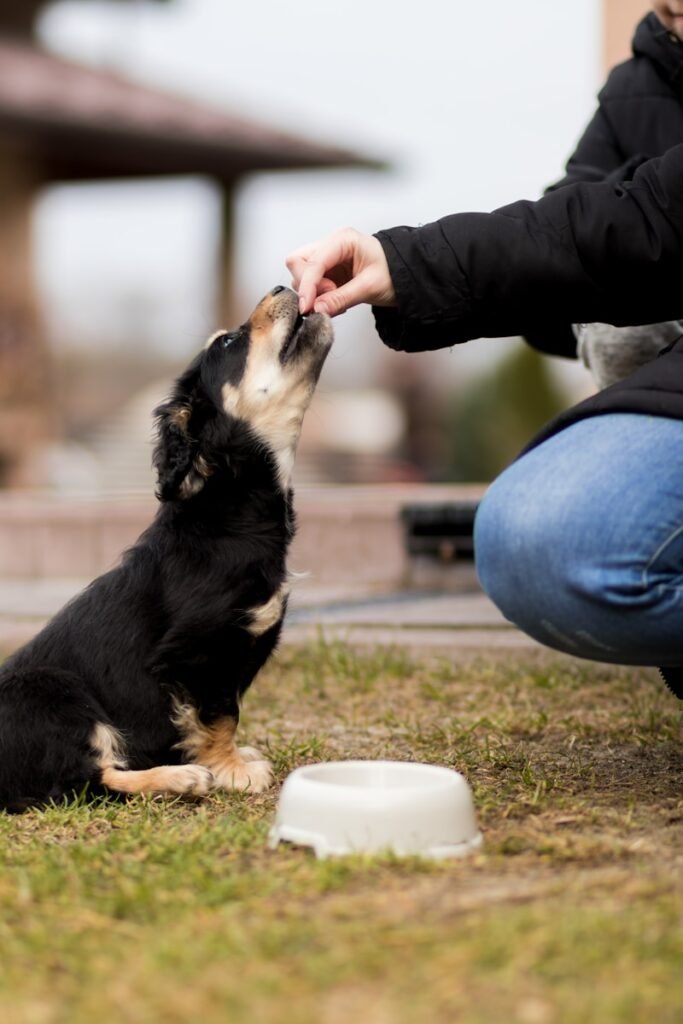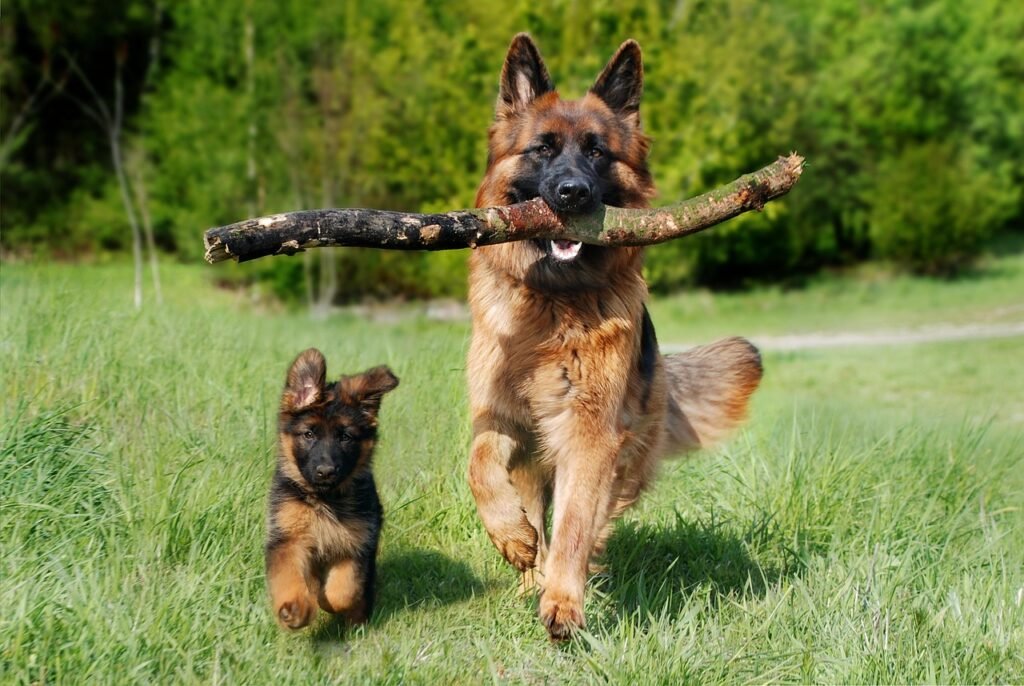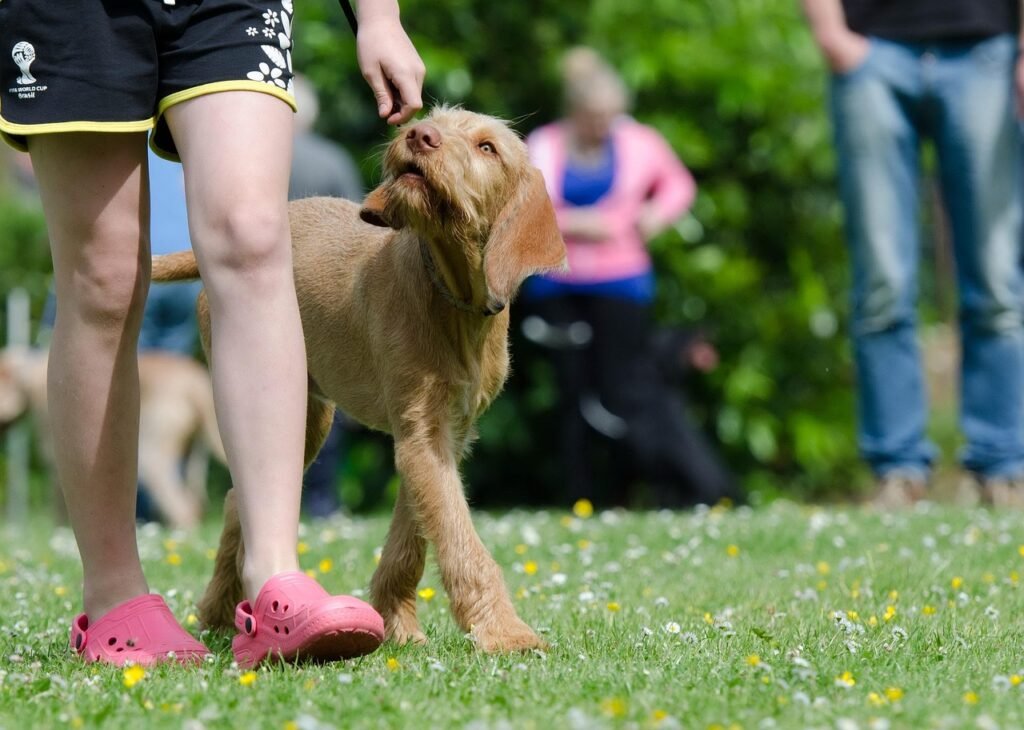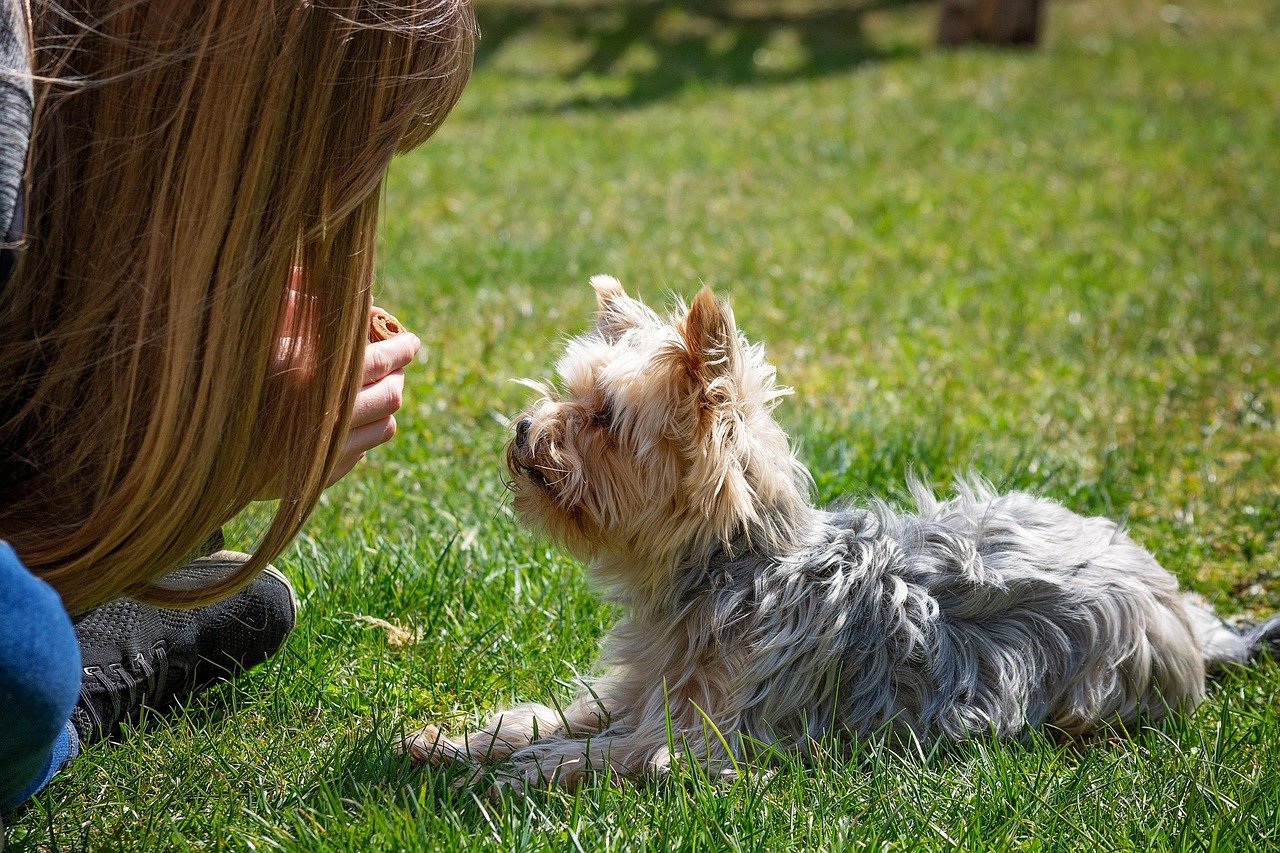If you’ve ever looked into the big round eyes of a tiny pup and wondered, “Are you going to be a handful when you grow up?” — well, science may have an answer for you. A recent study from researchers at the University of Helsinki found that a pup’s early thinking skills may help predict how well they’ll respond to training and behave as an adult.
In other words: your pup’s brain might already be telling you what kind of grown-up they’re going to be.
Test Time for Tiny Tails

The study, published in Applied Animal Behaviour Science, followed over 1,400 puppies, all between the ages of 3 and 7 months. These good boys and girls were asked to do all sorts of smart-dog tasks — like following human gestures to find treats, solving puzzles, or resisting the urge to pounce on food in tricky situations.
These tests measured traits like impulsivity, ability to read human gestures, persistence in the face of unsolvable problems i.e. not giving up when the task seems confusing.
The researchers used a platform called smartDOG, which runs doggy intelligence tests for curious pet parents, show dog trainers, and working dog programs. Think of it like doggy SATs — but with more treats.
Fast Forward: Pup to Pro

Out of the 1,400 dogs tested, 99 of them came back to do the same tests again as adults, between the ages of one and eight. Researchers found that dogs traits were stable through going into adulthood.
Traits like how impulsive a dog is, or how well they can read a human’s body language, remained pretty stable, especially if they were tested around 6 or 7 months old.
This means that some of those quirks you see early on — like ignoring you when you point, or obsessing over a puzzle toy — could be clues to what kind of doggo you’ll be living with long-term. With puppies with high impulse control, tended to become more calm as they aged, whereas puppies that acted scared tended to be disinclined to meet strangers as adults.
Why It Matters for Humans (and Pups!)

Understanding your puppy’s cognition can help you train them better and set them up for success. A pup that struggles with focus may need shorter, snappier training sessions, while a pup that loves solving problems might thrive with puzzle toys or scent work later in life.
And let’s be real: Knowing whether you’ve got a chill couch potato or a future agility champ on your hands can help you plan the perfect life together — with fewer chewed-up slippers.
Katriina Tiira, who founded smartDOG, Ltd. and co-authored the study, said dogs that are more nervous around strangers she would push to have more experiences with humans. She said she would also give them a lot of encouragement when training to increase their confidence.
A Treat for Thought
So the next time your puppy gives up on a puzzle toy too quickly or nails the “find the snack under the cup” game, remember: their little brains are growing fast, and those early signs of smarts (or sass) could be here to stay.
Science says it’s never too early to get to know the dog your pup will become — and honestly, that sounds positively brilliant.






